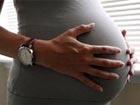| Videos | ? Latest |
|
? Feature | ? Sports | ? Your Videos |
A/H1N1 vaccinations urged for pregnant women
The Ministry of Health has confirmed 6,129 more cases of A/H1N1 flu in the past week. Ninety-one people have died of the disease on the mainland so far. The Ministry also confirmed that a growing proportion of pregnant women are among the fatal and severe cases. It has urged immediate vaccinations for high risk groups, particularly pregnant women.
Pregnant women are considered a top high-risk group for the A/H1N1 flu. Because their immune systems are greatly diminished during pregnancy, they are less able to fight off virus infections. In addition, they are more susceptible to developing serious complications, such as pneumonia, once infected.
Pregnant women also have less chance of recovering once they become infected with A/H1N1. Experts say the optimal time for treatment is 72 hours after exposure. Pregnant women are urged to see their doctors at the very first sign of any flu-like symptoms. Otherwise, life-threatening complications could develop.
Experts also urge pregnant women to receive the A/H1N1 flu vaccine. They say the vaccine, which has been tested and approved by the World Health Organization, will not harm the mother or the fetus.
Bian Xuming, professor of Beijing Xiehe Hospital, said, "We have all the necessary evidence to prove the safety of the vaccine used in our country. It has very limited side-effects. Compared to the danger of being infected, receiving the vaccine is the best thing for pregnant women. They can be vaccinated at any time during their pregnancy."
Experts also advise pregnant women to take effective measures against the virus, such as wearing face masks in public, and getting enough sleep.

 0 Comments
0 Comments






